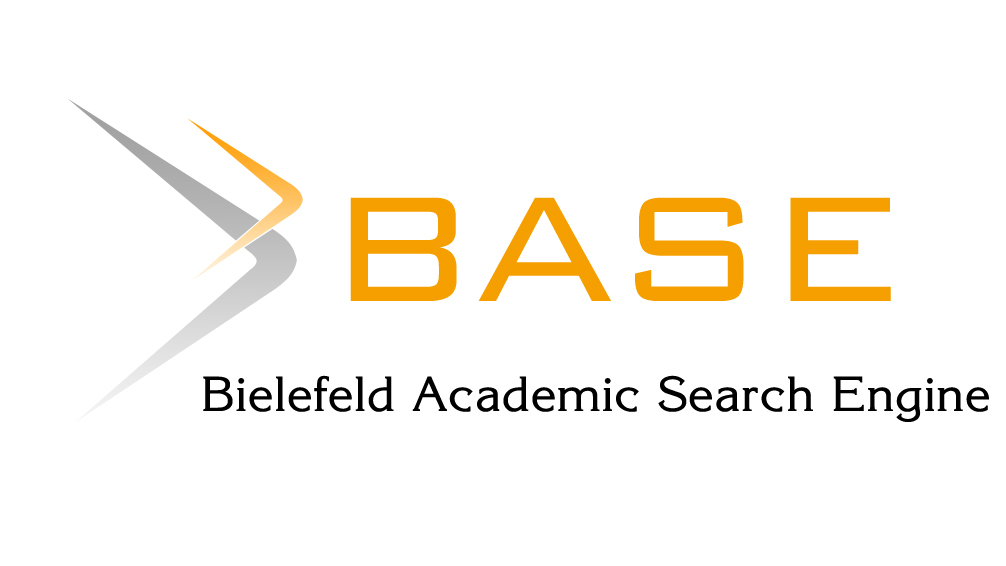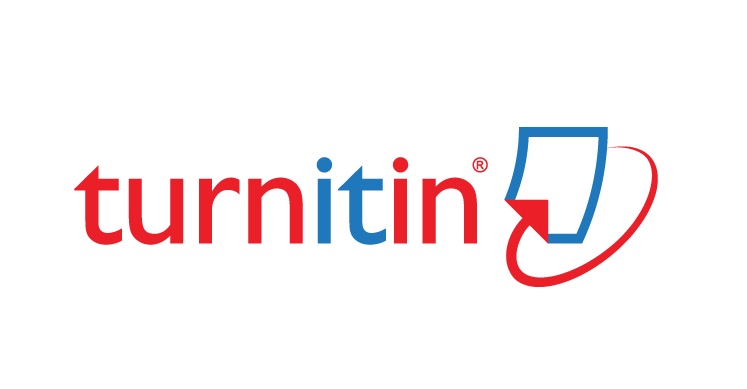UNVEILING VIETNAMESE ENGLISH MAJORS’ PERCEPTIONS OF AI CHATBOTS: A REFLECTIVE EXPLORATION THROUGH CONCEPTUAL METAPHORS AT TRA VINH UNIVERSITY, VIETNAM
Abstract
Conceptual metaphors are a fundamental aspect of human cognition that allows people to understand abstract ideas through more objective experiences. Recent studies show that metaphors are widely used in language and significantly influence human thought processes. However, how conceptual metaphors represent language learners’ perspectives, has been required for more attention. Adapting the Conceptual Metaphor Theory proposed by Johnson and Lakoff, this study aims to analyse the conceptual metaphors employed by Vietnamese English majors to reflect their perceptions regarding the use of AI chatbots, especially ChatGPT, in language learning in general and Englishspeaking skill enhancement in particular. Data involves the collection of reflective statements from 32 participants, followed by frequent occurrences analysis to identify recurring conceptual metaphors and associated perceptions. The findings revealed that varied metaphors are illustrated, and that tool and learning companions appear to be the two most popular. Furthermore, the metaphors have been categorised into underlying sub-themes. While the majority of representations seem beneficial, concerns are also raised regarding creativity and critical thinking abilities may be replaced if students overuse ChatGPT. Based on the results, digital literacy development for both instructors and students, academic integrity accountability, and plagiarism’s consequences are also discussed. This hopes to offer some insights for future research into various applications of ChatGPT for the analysis of specific language-learning settings.
Downloads
References
students of the use of ChatGPT in
education. International Journal of Emerging
Technologies in Learning. 2023;18(17): 4–19.
https://doi.org/10.3991/ijet.v18i17.39019.
[2] Du Boulay B. Artificial intelligence as
an effective classroom assistant. IEEE
Intelligent Systems. 2016;31(6): 76–81.
http://doi.org/10.1109/MIS.2016.93.
[3] Holmes W, Bialik M, Fadel C. Artificial Intelligence
in Education: Promises and Implications for Teaching
and Learning. Boston: Center for Curriculum Redesign; 2019. p.621–653.
[4] Linh PM, Wu TT. A conceptual framework on
learner’s attitude toward using AI chatbot based on
TAM Model in English classroom. The Proceedings
of English Language Teaching, Literature,
and Translation (ELTLT). 2023;12: 146–154.
https://proceeding.unnes.ac.id/eltlt/article/view/2793
[Accessed 9th April 2024].
[5] Atlas S. ChatGPT for higher education
and professional development: A guide to
conversational AI. United States: College
of Business Faculty Publications; 2023.
https://digitalcommons.uri.edu/cgi/viewcontent.cgi?
article=1547&context=cba_facpubs. [Accessed 11th
April 2024].
[6] Desai S, Twidale M. Using playful metaphors to conceptualize practical use of ChatGPT: An autoethnography. Proceedings of the Association for Information Science and Technology. 2023;60(1): 565–569.
https://doi.org/10.1002/pra2.816.
[7] Anderson SS. “Places to stand”: Multiple
metaphors for framing ChatGPT’s corpus.
Computers and Composition. 2023;68: 1–13.
https://doi.org/10.1016/j.compcom.2023.102778.
[8] Nerlich B. ChatGPT and its magical metaphors.
https://blogs.nottingham.ac.uk/makingsciencepublic/
2023/10/27/chatgpt-and-its-magical-metaphors/
[Accessed 7th April 2024].
[9] Dergaa I, Chamari K, Zmijewski P, Saad HB. From
human writing to artificial intelligence generated
text: examining the prospects and potential threats
of ChatGPT in academic writing. Biology of Sport.
2023;40(2): 615–622. https://doi.org/ 10.5114/biolsport.2023.125623.
[10] Qadir J. Engineering education in the era of
ChatGPT: Promise and pitfalls of generative AI for
education. In: IEEE Global Engineering Education
Conference (EDUCON). IEEE; 2023. p.1–9.
https://doi.org/10.1109/EDUCON54358.2023.10125121.
[11] Geng H, Nimehchisalem V. Can ChatGPT
analyse textual data? The sub-themes reflected
by typical conceptual metaphors in short
stories of language assessment. ASEAN Journal
of Applied Languages. 2023;2(1): 16–31.
https://ejournal.maal.org.my/asjal/article/view/9
[Accessed 7th April 2024].
[12] ChatGPT Generative Pre-trained Transformer,
Zhavoronkov A. Rapamycin in the context of
Pascal’s Wager: generative pre-trained transformer
perspective. Oncoscience. 2022;9: 82–84.
https://doi.org/10.18632/oncoscience.571.
[13] Dao XQ. Which large language model should you
use in Vietnamese education: ChatGPT, Bing Chat,
or Bard? SSRN Electronic Journal. 2023: 1–12.
http://dx.doi.org/10.2139/ssrn.4527476.
[14] Carlson M, Pack A, Escalante J. Utilizing OpenAI’s GPT-4 for written feedback. TESOL Journal.
2023;15(2): 1–7. https://doi.org/10.1002/tesj.759.
[15] El Babarti S, De La Higuera C, Magdelaine A. Uses
and perceptions of Chat GPT by higher education
students. https://chaireunescorelia.univ-nantes.fr/wpcontent/uploads/sites/98/2024/02/Research
_paper_Selma_ELBABARTI.pdf [Accessed 19th
March 2024].
[16] Klímová B, Ibna Seraj PM. The use of chatbots in university EFL settings: Research trends and pedagogical
implications. Frontiers in Psychology. 2023;14: 1–7.
https://doi.org/10.3389/fpsyg.2023.1131506.
[17] Rafique H, Nazeer I, Rehman J. The impact of
ChatGPT on language evolution: A linguistic analysis.
Journal of Education and Social Studies. 2024;5(1):
56–68. https://doi.org/10.52223/jess.2024.5106.
[18] Zawacki-Richter O, Marín VI, Bond M, Gouverneur
F. Systematic review of research on artificial intelligence applications in higher education – where are
the educators? International Journal of Educational
Technology in Higher Education. 2019;16(1): 1–27.
[19] Willems J. ChatGPT at universities–the least of
our concerns. SSRN Electronic Journal. 2023: 1–8.
http://dx.doi.org/10.2139/ssrn.4334162.
[20] Bhat S, Nguyen HA, Moore S, Stamper J, Sakr
M, Nyberg E. Towards automated generation and
evaluation of questions in educational domains. In:
Proceedings of the 15th International Conference
on Educational Data Mining. International Educational Data Mining Society; 2022. p.701–704.
https://doi.org/10.5281/zenodo.6853085.
[21] Kasneci E, Seßler K, Kuchemann S, Bannert ¨
M, Dementieva D, Fischer F, et al. ChatGPT
for good? On opportunities and challenges of
large language models for education. Learning
and Individual Differences. 2023;103: 102–274.
https://doi.org/10.1016/j.lindif.2023.102274.
[22] Halaweh M. ChatGPT in education: Strategies
for responsible implementation. Contemporary
Educational Technology. 2023;15(2): 1–11.
https://doi.org/10.30935/cedtech/13036.
[23] Crawford J, Cowling M, Allen KA. Leadership is
needed for ethical ChatGPT: Character, assessment,
and learning using artificial intelligence (AI). Journal of University Teaching & Learning Practice.
2023;20(3): 1–19. https://doi.org/10.53761/1.20.3.02.
[24] Malinka K, Peresíni M, Firc A, Hujnák O, Janus
F. On the educational impact of ChatGPT: Is artificial intelligence ready to obtain a university degree? In: Proceedings of the 2023 Conference on
Innovation and Technology in Computer Science Education. New York, NY, USA: ACM; 2023. p.47–53.
https://doi.org/10.48550/arXiv.2303.11146.
[25] Rudolph J, Tan S, Tan S. ChatGPT: Bullshit
spewer or the end of traditional assessments
in higher education? Journal of Applied
Learning and Teaching. 2023;6(1): 342–363.
https://doi.org/10.37074/jalt.2023.6.1.9.
[26] Soriano C. Emotion and conceptual metaphor. In:
Flam H, Kleres J (eds.). Methods of exploring emotions. New York & London: Routledge; 2015. p.206–
214. https://api.taylorfrancis.com/content/chapters/
edit/download?identifierName=doi&identifierValue=
10.4324/9781315756530-24&type=chapterpdf
[Accessed 8th April 2024].
[27] Aldrick P. ChatGPT will be the calculator for writing, top economist says.
https://www.bloomberg.com/news/articles/2023-
01-18/chatgpt-will-be-the-calculator-for-writing-topeconomist-says [Accessed 8th April 2024].
[28] Stokel-Walker C. ChatGPT listed as
author on research papers: many scientists
disapprove. Nature. 2023;613(7945): 620–621.
https://doi.org/10.1038/d41586-023-00107-z.
[29] Caitlin D. Can ChatGPT be your coauthor?
BC Medical Journal. 2023;65(6): 193–193.
https://bcmj.org/editorials/can-chatgpt-be-yourcoauthor. [Accessed 7th April 2024].
[30] Ajlouni AO, Wahba FAA, Almahaireh AS.
Students’ attitudes towards using ChatGPT as
a learning tool: the case of the University of
Jordan. International Journal of Interactive
Mobile Technologies. 2023;17(18): 99–117.
https://doi.org/10.3991/ijim.v17i18.41753.
[31] Baidoo-Anu D, Ansah LO. Education in the era of
generative artificial intelligence (AI): Understanding
the potential benefits of ChatGPT in promoting teaching and learning. Journal of AI. 2023;7(1): 52–62.
http://dx.doi.org/10.2139/ssrn.4337484.
[32] Johnson M, Lakoff G. Metaphors we live by. Chicago:
University of Chicago Press; 1980.
[33] ST5. Interviewed by: Nguyen Hieu Thao. 20th April 2024.
[34] ST2. Interviewed by: Nguyen Hieu Thao. 20th April 2024.
[35] ST16. Interviewed by: Nguyen Hieu Thao. 20th April 2024.
[36] ST14. Interviewed by: Nguyen Hieu Thao. 20th April 2024.
[37] ST19. Interviewed by: Nguyen Hieu Thao. 20th April 2024.
[38] ST11. Interviewed by: Nguyen Hieu Thao. 20th April 2024.
[39] ST1. Interviewed by: Nguyen Hieu Thao. 20th April 2024.
[40] ST24. Interviewed by: Nguyen Hieu Thao. 20th April 2024.
[41] ST28. Interviewed by: Nguyen Hieu Thao. 20th April 2024.
[42] ST23. Interviewed by: Nguyen Hieu Thao. 20th April 2024.
[43] ST32. Interviewed by: Nguyen Hieu Thao. 20th April 2024.
[44] ST9. Interviewed by: Nguyen Hieu Thao. 20th April 2024.









